When you have a feline friend, finding fur everywhere is just part of life. That hair might become a nuisance if your cat is shedding more than normal, though. That’s never fun! For those who are wondering, “Why is my cat shedding so much?” — it might be time to try some strategies to minimize your buddy’s hair loss.
Many factors can affect the health of your cat’s coat and how much he sheds, including nutrition, grooming, and even stress. You’ll want to find ways to support your cat’s coat health and minimize his shedding, because this can make for less cat hair around your house (as well as less cleaning for you).
While you won’t eliminate extra hair entirely, these are the ways that you can reduce cat shedding. Keep reading to learn how to reduce cat hair shedding.
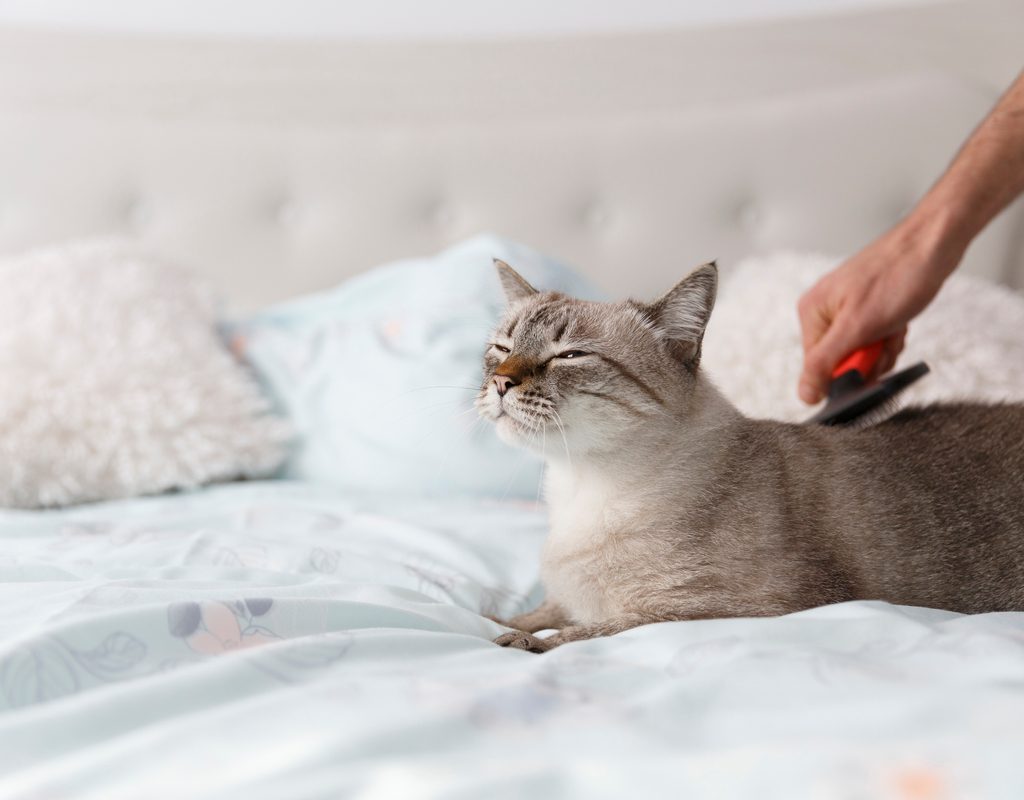
Get your cat to drink plenty of water to keep their whole body hydrated
Your cat’s hydration habits affect his coat health and the moisture in his coat, as well as his overall health. Still, some cats don’t drink enough throughout the day, so you may need to encourage your kitty to hydrate.
If room temperature water isn’t cutting it alone, consider adding wet food to your cat’s diet. Your cat will get moisture from each meal without making that extra trip to the litter box.
To encourage your cat to drink more, you can also think about getting a cat water fountain. This running water is enticing to cats, much in the same way that water dripping from faucets is so captivating.
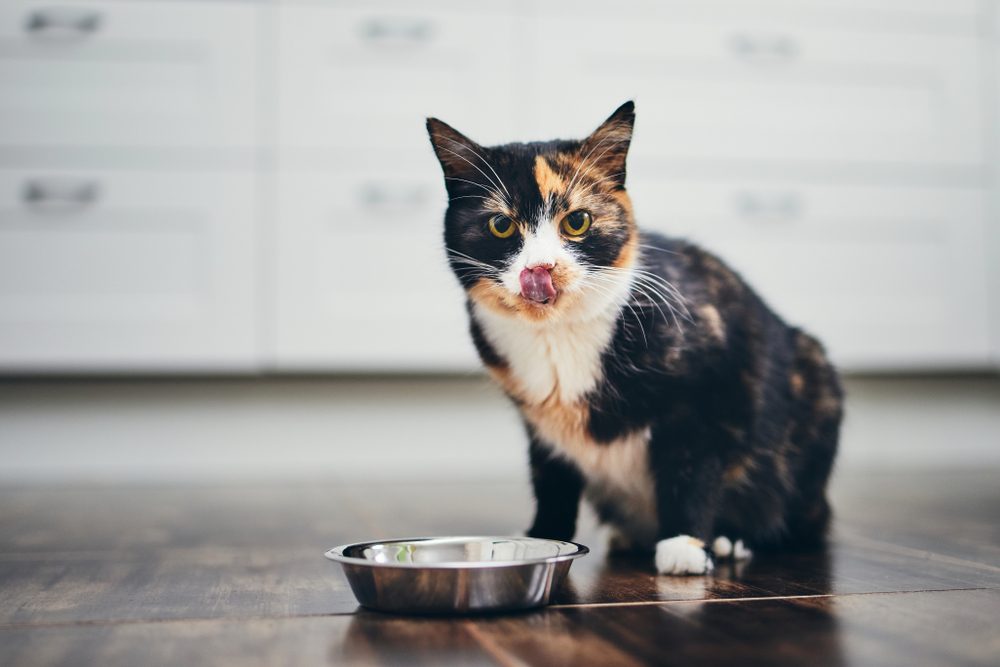
Check your cat’s nutrition — is he getting a complete, balanced diet?
If your cat’s diet is lacking in nutrition, it could cause his coat to be dry and brittle. This leads to more shedding and hair breakage. Since omega-3 and omega-6 fatty acids are extra important to hair health, a diet that’s lacking in these can be particularly problematic.
To promote a healthy coat as well as overall health, look for food that offers a balanced diet for your cat. Your vet can advise you about foods that meet your cat’s nutritional requirements if you need.
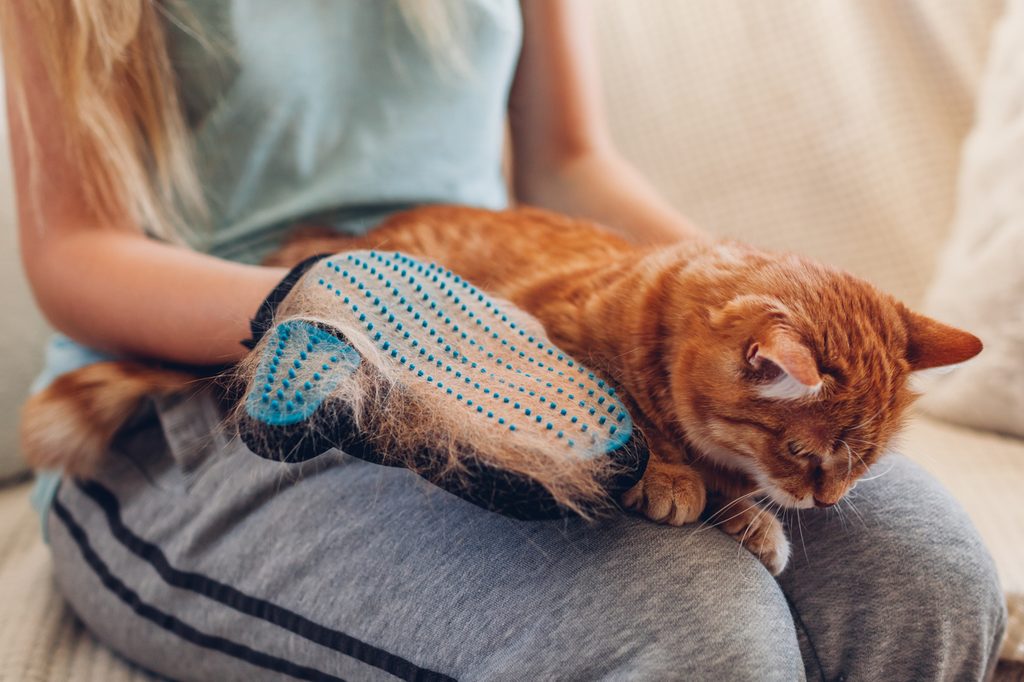
Provide plenty of brushing for a clean, detangled coat
Regular brushing is important when keeping your cat’s coat healthy. This can help remove loose or dead hair, which means there’s less of it left to float around your house. It also helps spread your cat’s natural oils through his coat, contributing to healthier hair.
For cats with longer fur, brushing can also prevent mats from forming — which would be more comfortable for everyone!
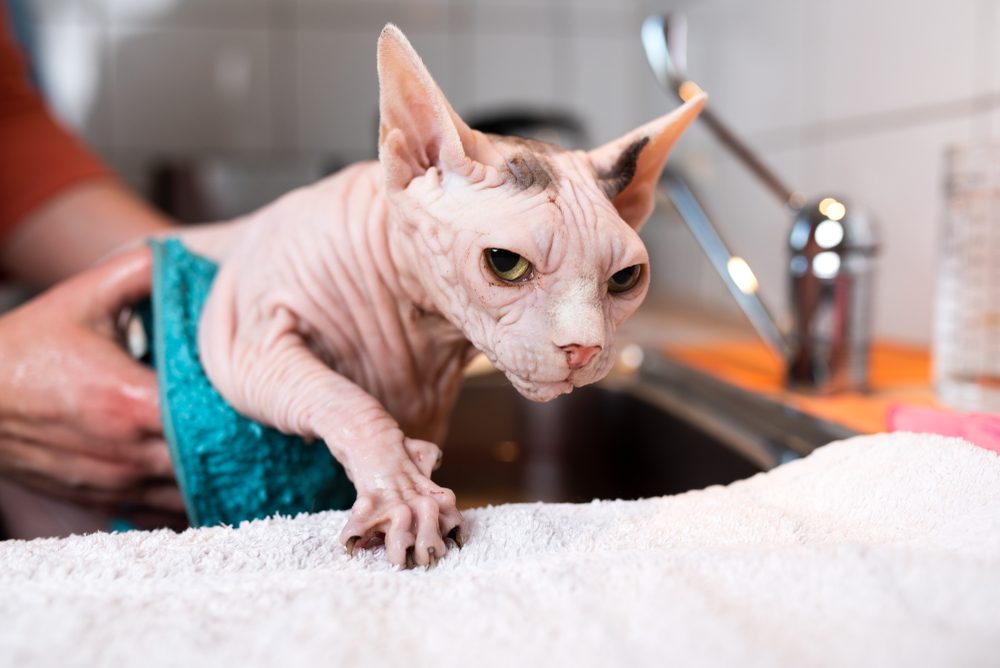
In rare instances, you can shave your cat to keep their coat healthy
If you’re really fed up with shedding, then you might consider “shaving your cat” in the summer. As FirstVet explains, this is primarily only done under veterinary approval (to treat an external parasite, for example), though a professional groomer can easily trim a feline’s fur very close to the skin for comfort or matting purposes.
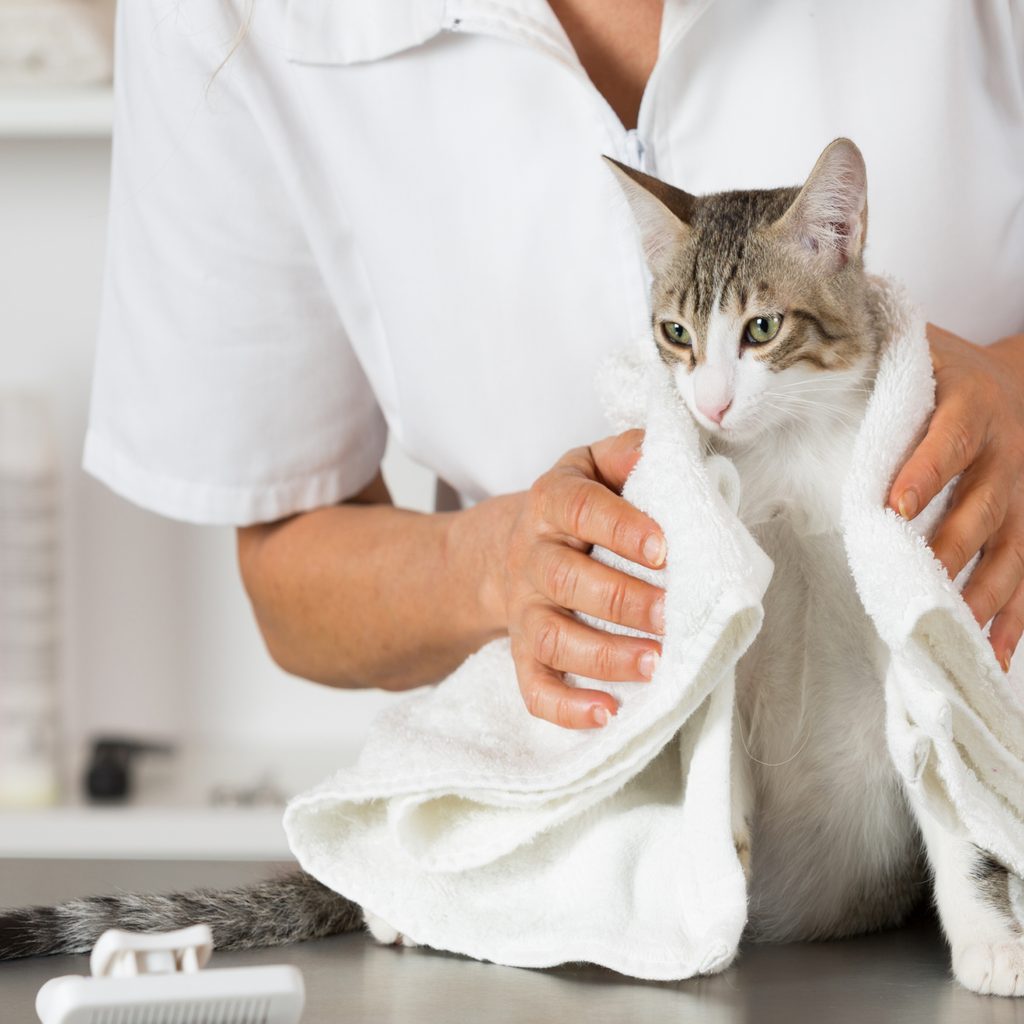
Bathe and groom your cat, despite their protests, for the healthiest feline fur
Giving your cat a bath can also help remove extra hair, but most cats won’t be thrilled with this idea. Alternatively, you might use moistened wipes designed for your cat’s coat, which will give you some of the same effects. You also could try textured cat grooming gloves designed to gently pull out loose hair while you stroke your cat–if your feline doesn’t mind them, that is.
Reducing your cat’s stress has so many benefits, including coat health
Excessive stress can contribute to shedding, and some cats may even overgroom in response. If you’ve recently moved, added a new family member, or even drastically changed your schedule, your cat might be stressed as a result. They’re more sensitive than you may realize!
If this is the cae, it helps to look for ways to reassure and calm your cat. Using pheromones can help reduce his stress, but it’s also important to give him some space and to help him feel secure, even amid change.
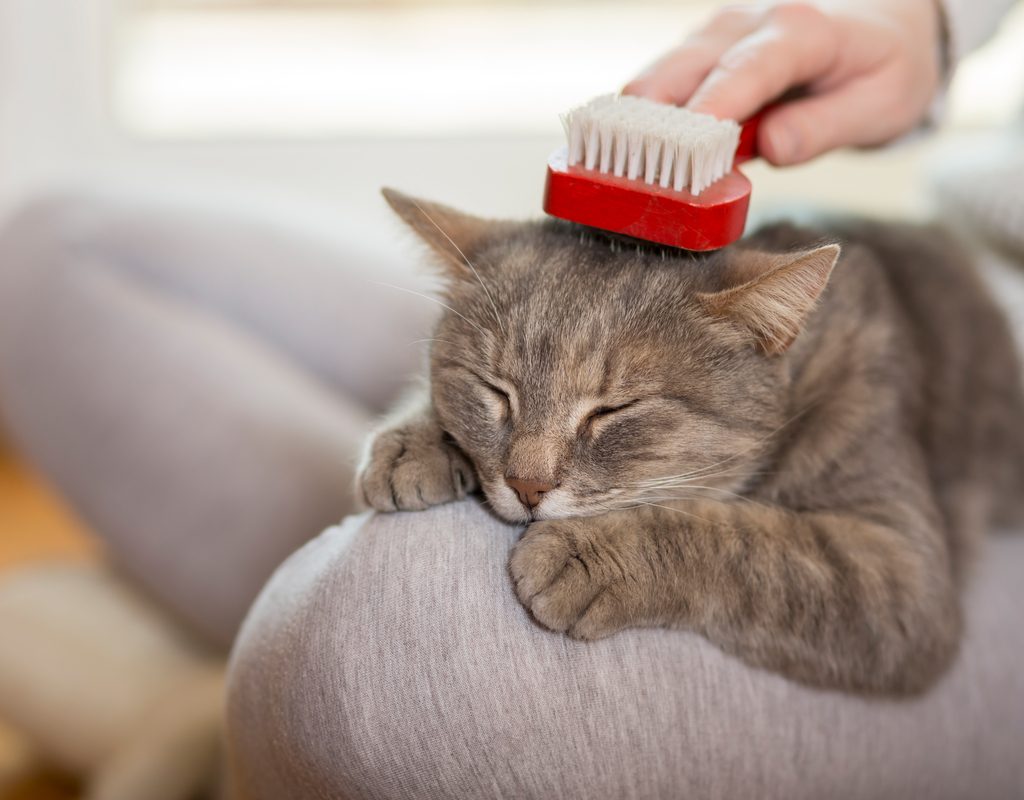
Check in with the vet if you’re concerned about your cat’s fur
If your cat is shedding an unusual amount, a trip to the vet might be in order. A thorough exam can help determine whether there might be underlying causes for these hair problems, and it will give your vet the chance to recommend supplements or diet changes that can promote a healthy coat.
In some cases, hair loss might not actually be shedding. A cat who’s losing hair in patches could be suffering from ringworm or other skin infections, too. Allergies can also result in excessive scratching and hair loss, though your vet can help you determine what the underlying cause may be.
All cats (except hairless felines) will shed, and some more than others — that’s normal! For example, long-haired breeds will definitely lose more hair than shorter-furred felines. While you can take these steps to help reduce your cat’s shedding regardless of their breed, it’s also important to learn to deal with the hair. Thoroughly vacuuming your home, using lint rollers, and even covering your furniture with blankets can help control the hair even a little. You’ll still have to contend with hair tumbleweeds floating around your home, but when you’re vigilant about cleaning, they’re a little easier to manage.


